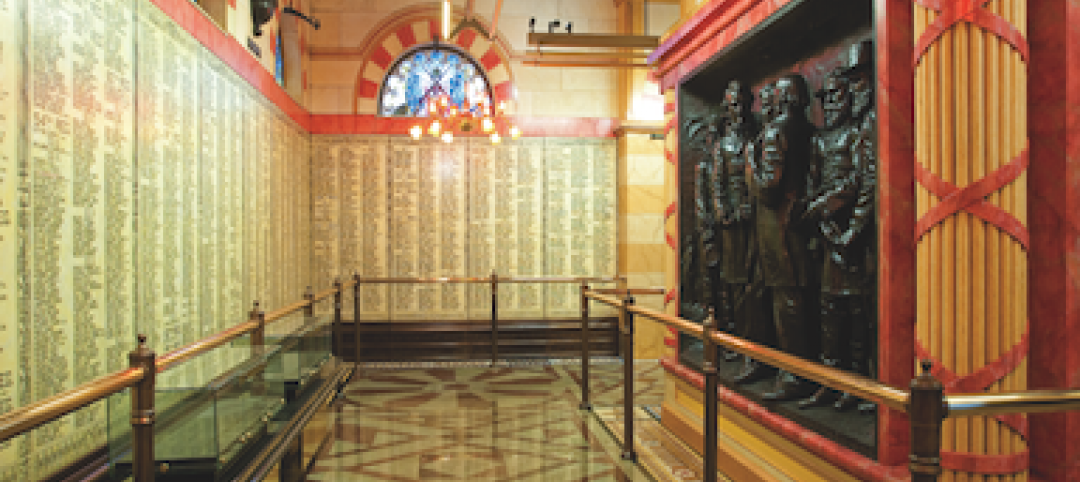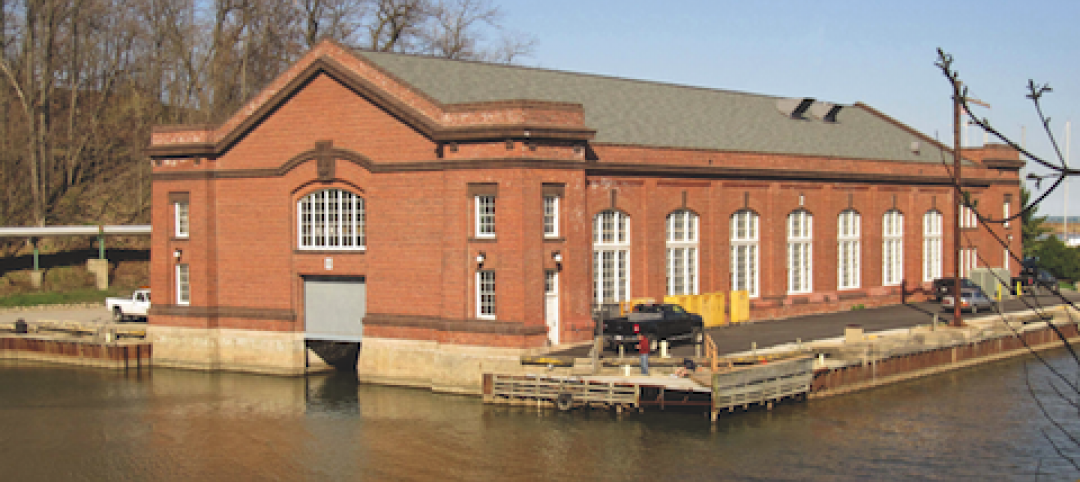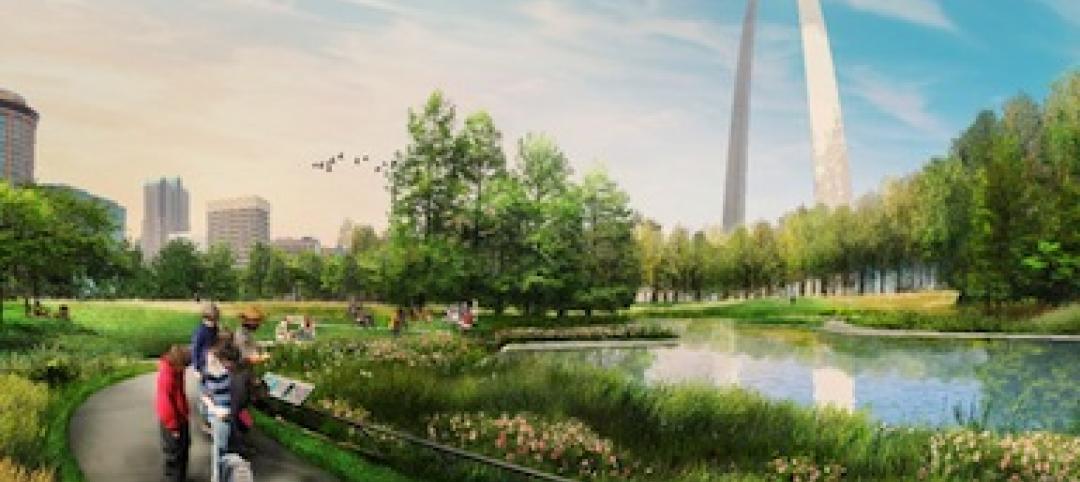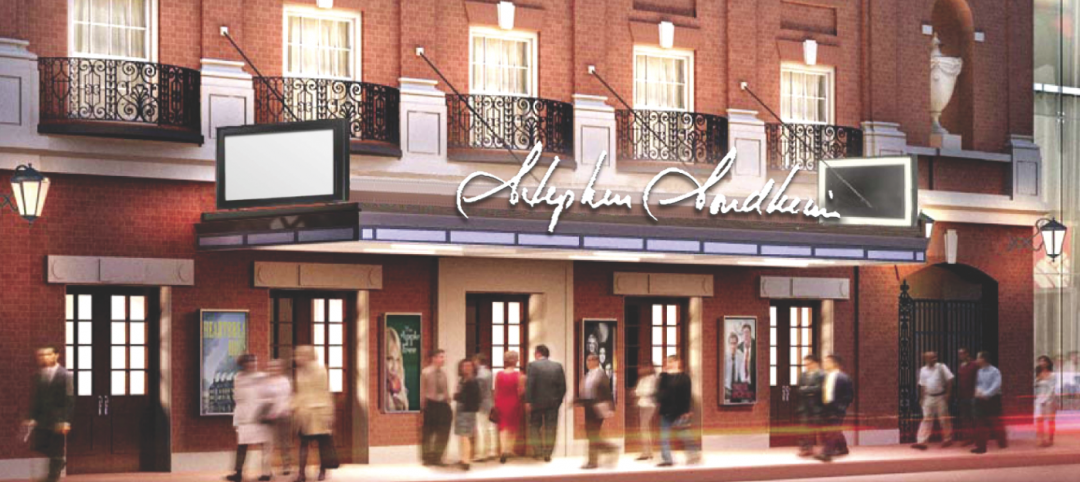A major movie studio needed a new vault to protect its irreplaceable negatives for films released after 1982. The studio was against installing a fire-sprinkler system. But a consultant reminded the studio that an insurer would require some sort of water system to protect the building itself if not the films, which are uninsurable.
The studio turned to SmithGroupJJR, which designed the 415,000-sf National A/V Conservation Center in Culpeper, Va., where the Library of Congress houses its film, video, broadcast, and recorded sound materials.
In that project, local code officials required a clean-agent fire suppression system with a pre-action water sprinkler system as backup. SmithGroupJJR went with a primary system that uses FM-200, a clean, colorless, environmentally friendly gaseous suppressant.
For the movie studio, SmithGroup came up with a “Russian nesting doll” design. SVP Hal Davis, the firm’s Cultural Studio Leader, explains that the vault is its own separate building, equipped with a clean-agent suppression system. The inner shell maintains temperature and humidity at just the right levels to preserve the film negatives. A second structure, fitted with a sprinkler system, will be built over the vault in such a way that water can’t get to the film stock. The roof actually diverts water away from the vault.
Construction of the nearly 10,000-sf structure kicked off in November. Davis says the structural redundancy, while adding to total cost, enabled the building to exceed the regional seismic code standard.
The design has attracted the attention of another studio. Davis believes the concept could have applications for other buildings that protect valuable books, paintings, artifacts, and documents.
Read about more innovations from BD+C's 2014 Great Solutions Report.
Related Stories
| Oct 12, 2010
Richmond CenterStage, Richmond, Va.
27th Annual Reconstruction Awards—Bronze Award. The Richmond CenterStage opened in 1928 in the Virginia capital as a grand movie palace named Loew’s Theatre. It was reinvented in 1983 as a performing arts center known as Carpenter Theatre and hobbled along until 2004, when the crumbling venue was mercifully shuttered.
| Oct 12, 2010
Gartner Auditorium, Cleveland Museum of Art
27th Annual Reconstruction Awards—Silver Award. Gartner Auditorium was originally designed by Marcel Breuer and completed, in 1971, as part of his Education Wing at the Cleveland Museum of Art. Despite that lofty provenance, the Gartner was never a perfect music venue.
| Oct 12, 2010
The Watch Factory, Waltham, Mass.
27th Annual Reconstruction Awards — Gold Award. When the Boston Watch Company opened its factory in 1854 on the banks of the Charles River in Waltham, Mass., the area was far enough away from the dust, dirt, and grime of Boston to safely assemble delicate watch parts.
| Oct 12, 2010
Cuyahoga County Soldiers’ and Sailors’ Monument, Cleveland, Ohio
27th Annual Reconstruction Awards—Gold Award. The Cuyahoga County Soldiers’ and Sailors’ Monument was dedicated on the Fourth of July, 1894, to honor the memory of the more than 9,000 Cuyahoga County veterans of the Civil War.
| Oct 12, 2010
Building 13 Naval Station, Great Lakes, Ill.
27th Annual Reconstruction Awards—Gold Award. Designed by Chicago architect Jarvis Hunt and constructed in 1903, Building 13 is one of 39 structures within the Great Lakes Historic District at Naval Station Great Lakes, Ill.
| Oct 12, 2010
From ‘Plain Box’ to Community Asset
The Mid-Ohio Foodbank helps provide 55,000 meals a day to the hungry. Who would guess that it was once a nondescript mattress factory?
| Sep 22, 2010
Michael Van Valkenburg Assoc. wins St. Louis Gateway Arch design competition
Landscape architect Michael Van Valkenburgh and a multidisciplinary team of experts in “urban renewal, preservation, commemoration, social connections and ecological restoration” have been picked for the planning phase of The City+The Arch+The River 2015 International Design Competition.
| Sep 13, 2010
Second Time Around
A Building Team preserves the historic facade of a Broadway theater en route to creating the first green playhouse on the Great White Way.















